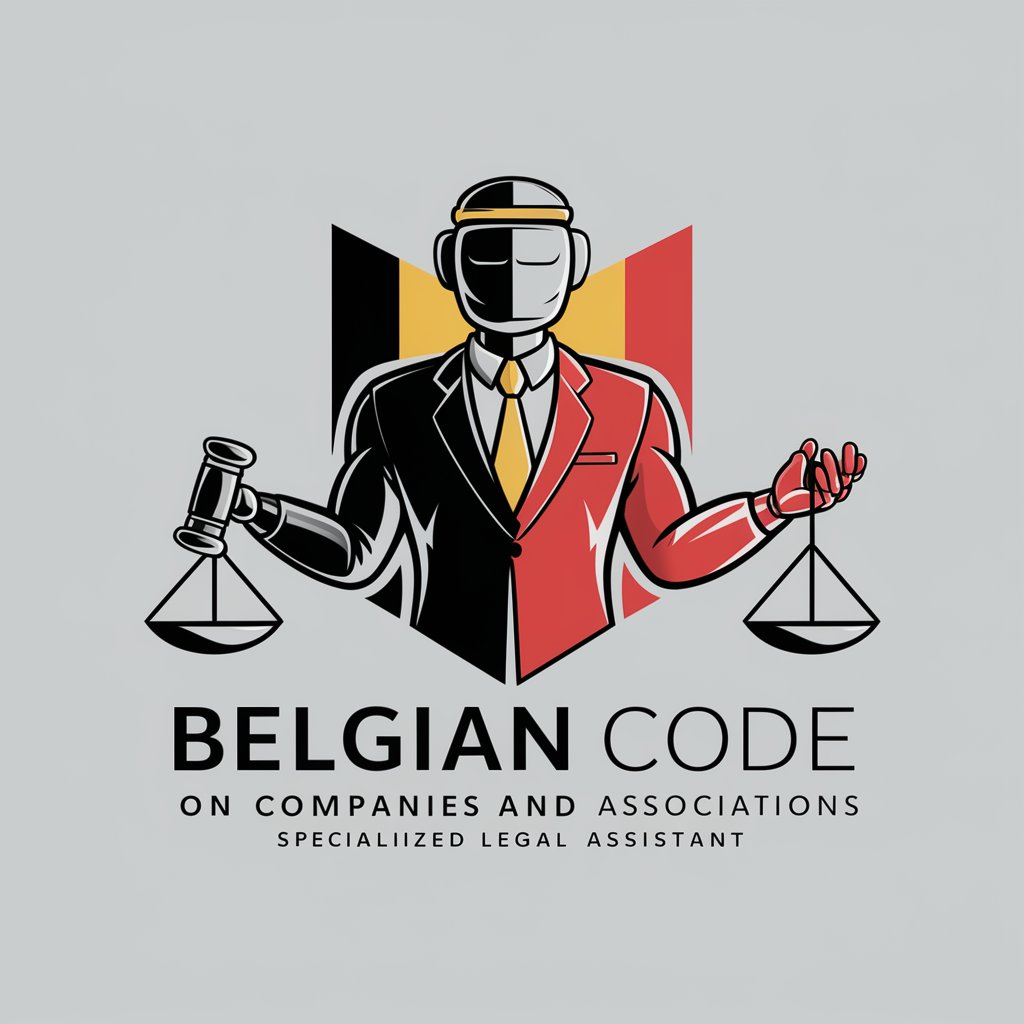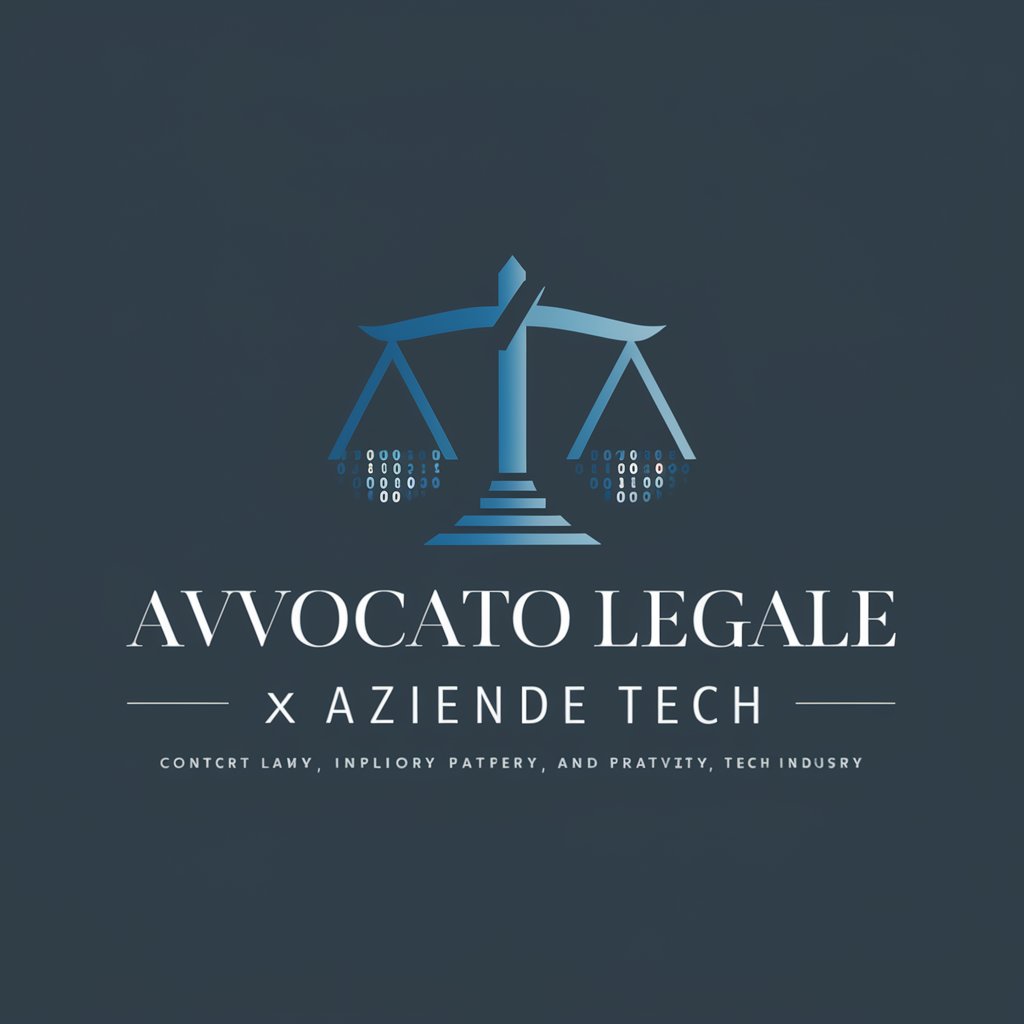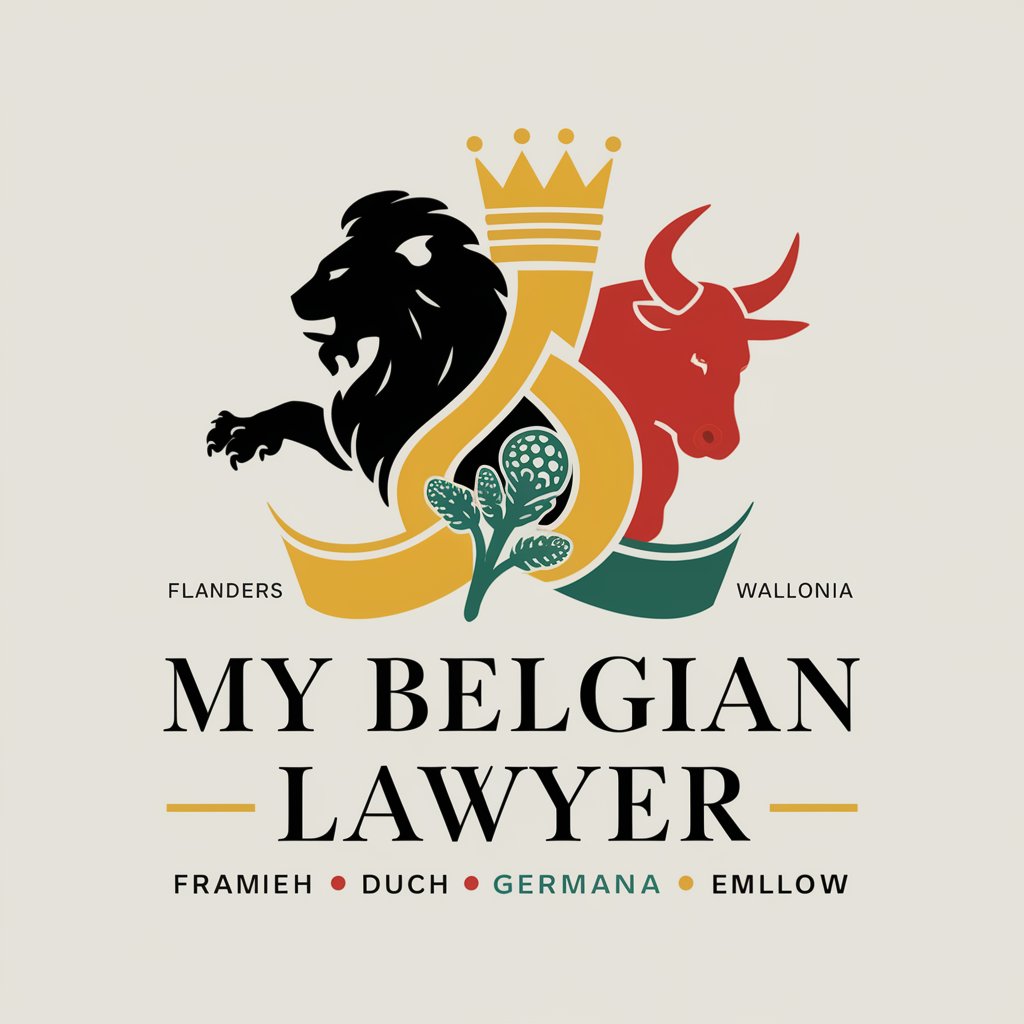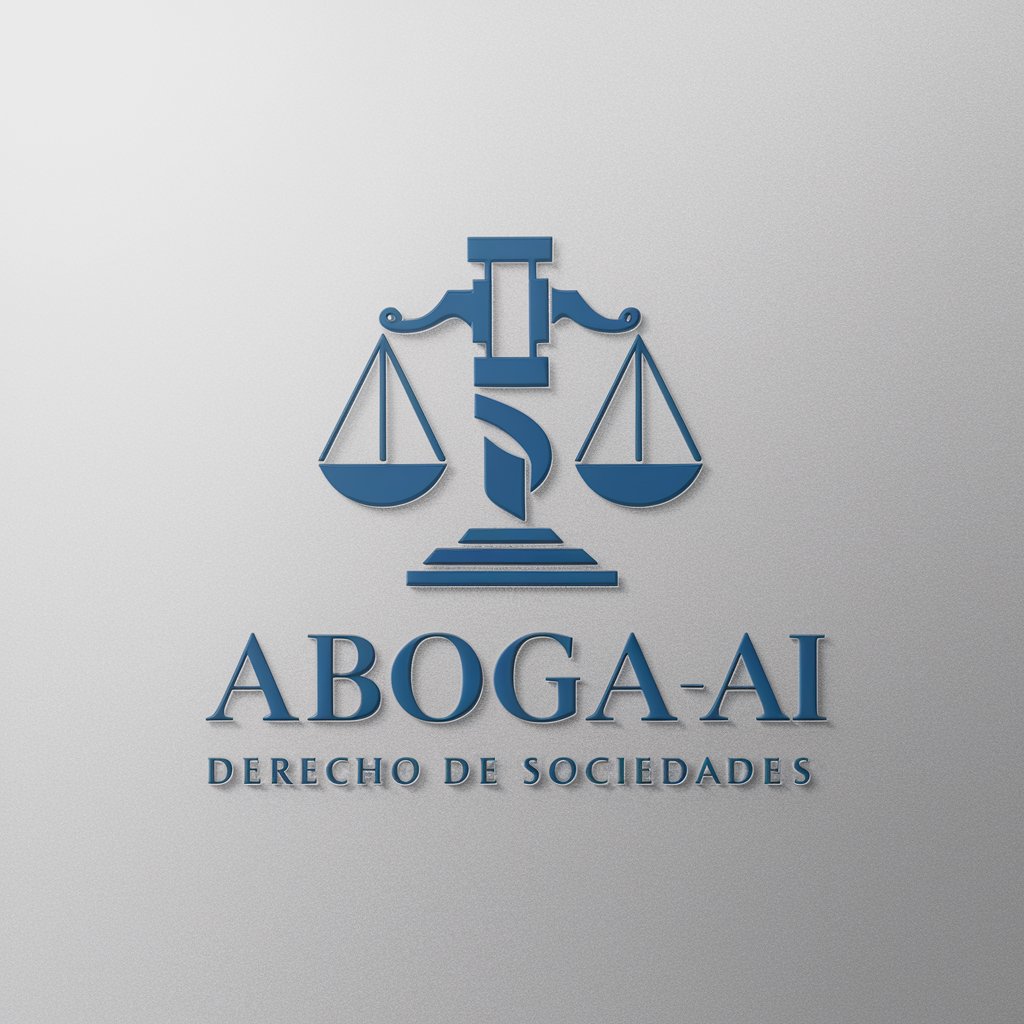
Belgian Code on Companies and Associations - Belgian Corporate Law Guide

Welcome to the Belgian Code on Companies and Associations.
Navigate Belgian corporate law with AI-powered precision
Explain the process for forming a private limited liability company (SRL) under Belgian law...
What are the key responsibilities of directors in a Belgian non-profit association (ASBL)?
How can a foreign company establish a branch in Belgium according to the Code des sociétés et associations?
Outline the dissolution process for a cooperative society (SC) in Belgium...
Get Embed Code
Overview of the Belgian Code on Companies and Associations
The Belgian Code on Companies and Associations (BCCA) represents a comprehensive legal framework regulating the establishment, operation, restructuring, and dissolution of companies, associations, and foundations in Belgium. Its primary purpose is to provide clear, modernized rules that promote flexibility, legal certainty, and the attractiveness of the Belgian legal entity regime for both national and international entrepreneurs and investors. The BCCA differentiates between various types of legal entities, such as private limited liability companies (SRL/BV), public limited liability companies (SA/NV), cooperative companies (SC/CV), associations (ASBL/VZW), and foundations (fondations/stichtingen), each with their specific features, capital requirements, governance structures, and reporting obligations. Key aspects include the introduction of a single company type with limited liability, the flexibility in the governance structure of companies, and the simplification of the rules for associations and foundations. For example, the transition from a mandatory dual governance model in public companies to an optional single/dual model illustrates the BCCA's flexibility. Furthermore, the code emphasizes the protection of shareholders and third parties through detailed provisions on financial assistance, conflicts of interest, and liability of directors. Powered by ChatGPT-4o。

Main Functions of the Belgian Code on Companies and Associations
Regulation of Legal Entities
Example
The BCCA governs the creation, operation, and dissolution of various types of legal entities in Belgium, such as SRL/BV, SA/NV, SC/CV, ASBL/VZW, and foundations.
Scenario
An entrepreneur looking to establish a startup in Belgium would consult the BCCA to determine the most suitable legal entity type, considering factors like capital requirements, governance structure, and operational flexibility.
Governance and Management
Example
It introduces flexible governance models, allowing companies to choose between a single or dual governance structure, thus tailoring the management structure to their specific needs.
Scenario
A multinational corporation planning to establish an SA/NV in Belgium can opt for a governance model that aligns with its global structure, either centralizing power within a single board of directors or distributing it between a management board and a supervisory board.
Financial Regulations and Protections
Example
The code sets out rules on financial transactions, distributions, and capital requirements to ensure the protection of shareholders and creditors.
Scenario
A company undergoing financial restructuring can refer to the BCCA to understand permissible capital adjustments, distributions to shareholders, and creditor protection mechanisms.
Flexibility for Non-profit Organizations
Example
The BCCA simplifies the operational rules for associations and foundations, allowing for greater flexibility in pursuit of their not-for-profit goals.
Scenario
A non-profit organization aiming to expand its activities across Europe can utilize the provisions of the BCCA to structure its operations efficiently while ensuring compliance with Belgian law.
Ideal Users of Belgian Code on Companies and Associations Services
Entrepreneurs and Business Owners
Individuals and entities looking to establish, operate, or dissolve a company, association, or foundation in Belgium would greatly benefit from the BCCA's comprehensive legal framework, ensuring their ventures are structured and governed according to Belgian law.
Legal Professionals
Lawyers, notaries, and legal advisors specializing in Belgian corporate law rely on the BCCA for guiding clients through legal entity management, compliance, and restructuring processes, providing expert advice based on the code's provisions.
Academics and Researchers
Individuals engaged in the study of corporate law, governance, and non-profit management use the BCCA as a reference point for analyzing the Belgian legal system's approach to regulating legal entities and their governance.
International Investors
Foreign investors considering business opportunities in Belgium can use the BCCA to understand the legal landscape, including types of entities they can establish, governance requirements, and protections offered to investors and directors.

Using the Belgian Code on Companies and Associations
Initiate your journey
Start by visiting yeschat.ai for an accessible, no-login required exploration of the Belgian Code on Companies and Associations, offering a free trial experience.
Identify your needs
Determine the specific information you need, whether it's for starting a new company, understanding compliance requirements, or resolving a specific legal issue related to Belgian corporate law.
Navigate the code
Use the table of contents and search functionality within the code to find relevant articles and sections pertaining to your query.
Interpret the law
Carefully read and interpret the legal texts, paying attention to definitions, requirements, and exceptions. Consider consulting legal experts if necessary.
Apply to your case
Apply the gleaned information to your specific situation, using it to inform decisions, prepare documents, or strategize legal actions.
Try other advanced and practical GPTs
Lawyer for Tech Companies
Empowering Tech Legality with AI

Lead Generation for Tech Companies
Empowering tech sales with AI-driven leads

Investing in Automobile Companies
Empowering Auto Investment Decisions

Driverless car companies
Empowering Writing with AI

Sim Companies Profit Optimizer
Optimize Your Sim Company with AI

Moving companies
Empower Your Writing with AI

Reiseführer Hard
Customized travel and comfort insights at your fingertips.

Natalie — Explain Hard Topics
Simplifying Complexity with AI-Powered Analogies

Funeral Friend AI
Compassionate AI-Powered Funeral Guidance

Funeral Home Managers Assistant
Streamlining Funeral Management with AI

Funeral GPT
Unveiling Asia's Funeral Customs with AI

Morticians, Undertakers, and Funeral Assistant
Empowering funeral professionals with AI.

Q&A on the Belgian Code on Companies and Associations
What is the Belgian Code on Companies and Associations?
It's a comprehensive legal framework governing the formation, operation, reorganization, and dissolution of companies and associations in Belgium. It covers everything from general principles to specific rules for different types of entities.
How can one start a company in Belgium under this code?
To start a company, you must choose the appropriate legal form, make necessary deposits or investments as outlined in the code, draft and sign the articles of association, and complete registration procedures with the Belgian business registry.
What are the main types of companies recognized under this code?
The code recognizes several company types, including private limited liability companies (SRL/BV), public limited companies (SA/NV), cooperative companies (SC/CV), and others, each with specific formation and operational rules.
Can foreign companies operate under this code?
Yes, foreign companies can operate in Belgium through branches or subsidiaries. They must adhere to specific registration and operational requirements outlined in the code.
What are the dissolution and liquidation processes for companies under this code?
Dissolution and liquidation processes are detailed in the code and involve steps like decision-making by shareholders, notification to the Commercial Court, settlement of debts, distribution of remaining assets, and deregistration.





